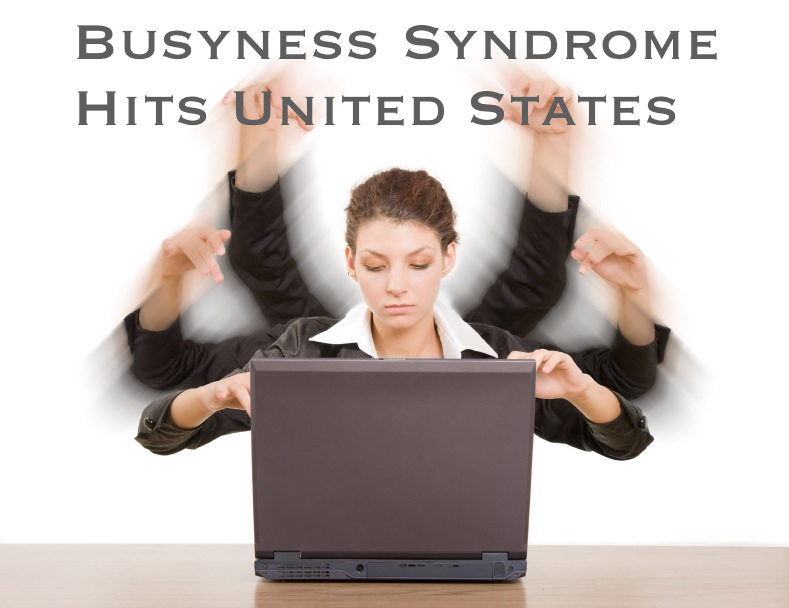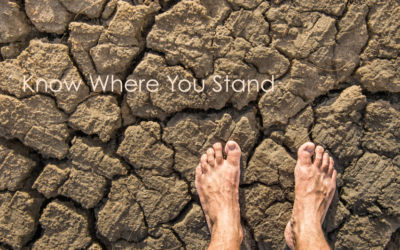 The CDC today reported a national outbreak of Busyness Syndrome across the United States. Leaders in all walks of life are asked to stay home, stay attuned to familiar needs, play with the kids, and walk the dog. The underlying cause of the disease is said to be lack of vulnerability. If left unchecked, Busyness Syndrome may spread to family members and co-workers.
The CDC today reported a national outbreak of Busyness Syndrome across the United States. Leaders in all walks of life are asked to stay home, stay attuned to familiar needs, play with the kids, and walk the dog. The underlying cause of the disease is said to be lack of vulnerability. If left unchecked, Busyness Syndrome may spread to family members and co-workers.
“Busyness Syndrome” is a made-up affliction, but if it caught your attention, chances are that you are suffering from being overworked or overworking yourself.
Too often, we equate busyness with productivity. Too often, we care about seeing people work rather than seeing them succeed and thrive. Too often, we use time as a measure. Too often, we feel like we must be doing something productive–something that can and will be measured.
Measurements of busyness and time start early and run late. How much did you weigh at birth? When did you learn to walk, talk, and read? What grades did you get? How many chores have you done? What was your ACT/SAT score? How many extracurricular activities do you have? When did you get your MBA? How many hours did you put in today? What are your numbers for the quarter? How many vacation days have you used? What time did you arrive? When are you planning to leave? How long do you plan to continue working?
Bear with me, I know you’re busy. I’ve been busy, too.
I grew up with a learning disability. I learned that not only could I address the issue by studying more in school, I could counter the problem by out-working the other students and winning better and better grades. I carried this attitude and these habits into my work life; I looked for them when hiring, and built them into our culture. I’d internalized American messages of about the value of hard work and keeping the pedal to the metal. In the process, I also tended to shove joy out of my life.
Toil is no source of shame; idleness is shame. – Hesiod
Shame drives Busyness Syndrome (or Workaholism), as do American messages about hard work and the need for continual improvement, but so does emotional avoidance. Busyness numbs you from yourself and your feelings. For those of us who totally love our kids, we often find ourselves diving into busyness to avoid the feelings of loss that their absence gives when they leave home.
The kids don’t have to be out of the house, though, for Busyness Syndrome to happen, of course. One Halloween night, Chris and I were at a friend’s home for a party with the kids (both in lower school at the time). I was answering messages on my BlackBerry. This was before most people new what BlackBerries were; the expectations of perma-availability and perma-contact weren’t even in place. What was so important that I needed the distraction? What was I avoiding? I don’t recall. What I do recall is my eldest daughter giving me the look and then saying, “Put that away.” And suddenly I was no longer busy; I was simply being at a party.
In Daring Greatly, Brené Brown says that vulnerability, fear, and uncertainty (and the pain they cause) lead to the following coping mechanisms:
- Avoiding Joy
- Perfectionism
- Numbing
If you’re suffering from Busyness Syndrome, these coping mechanisms probably resonate. They do for me, and they often do for the high-achieving executives I coach.
Brown’s research showed that wholehearted people live lives full of worthiness, rest, play, trust, faith, intuition, hope, authenticity, love, belonging, joy, gratitude, and creativity, while avoiding perfectionism, numbing, certainty, exhaustion, self-sufficiency, being cool, fitting in, judgment, and scarcity.
How can you lead a more wholehearted life?


